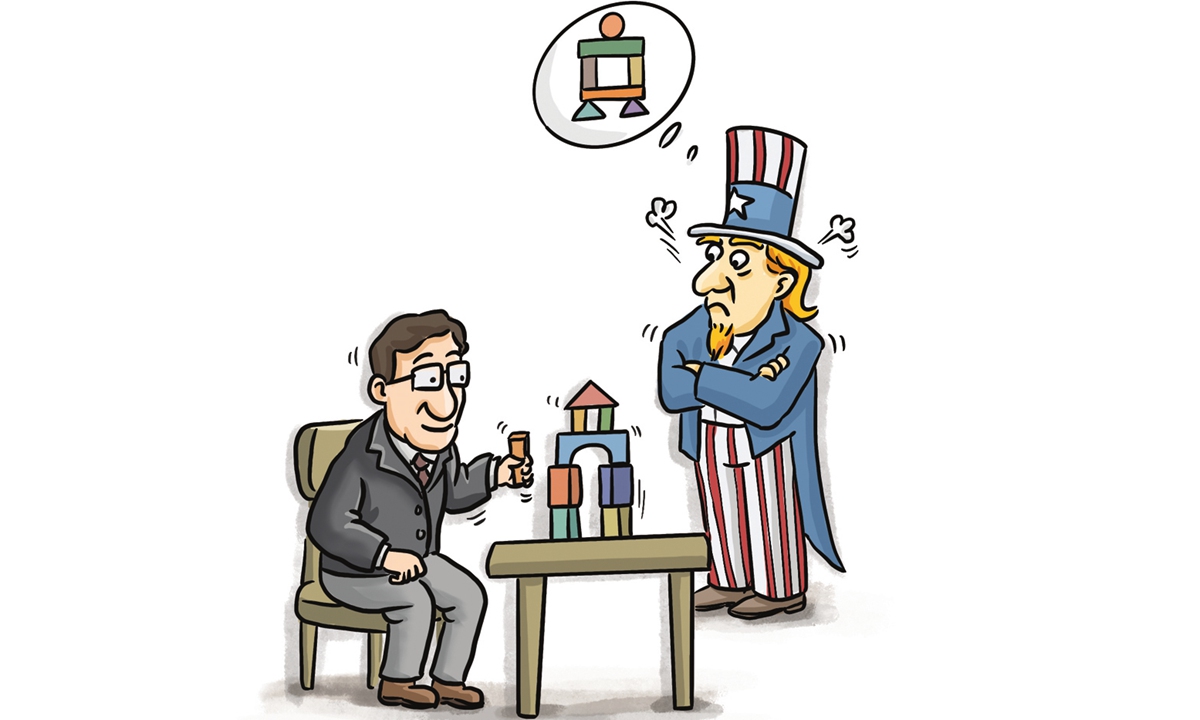Why US so obsessed with ideas of changing others?

By
Ding Gang
There is a crucial element for the stable development of US-China relations: US policymakers need to restrain and abandon their intrinsic impulse to change China’s political system.
Expanding the ideas and concepts of the US empire into the world has always prevented the two countries from seeking a persistent, peaceful coexistence on an equal footing.
The two countries have different ideologies and political systems. Yet they are determined by the fact that they are two civilizations. Both civilizations have a long development process. The doctrines and political systems built on their respective foundations are therefore different.
China has learned a lot from the West, but it cannot and will not wholly copy the Western system. It is impossible and hazardous for the US to do everything it can to change China’s political system according to US willingness. Threatening China to alter course of action by making it the enemy won’t work.
It seems that Washington has been trying to transform the Islamic states after the 9/11 attacks. This has been a completely counterproductive move. It ultimately dragged itself into numerous quagmires.
China has its ideology, but that does not mean that it will impose its ideology and democracy model on the world. China’s economy grows fast, and it has become the second-largest economy in the world. Even with this wealth, China has no urge to conquer or transform other countries, let alone dominate the world.
It is ridiculous to presuppose that China wants to seize the global dominance of the US politically and economically. Yet the US says China wants to surpass them and lead the world to abandon the American model of democracy. It further says China wants to spread a Chinese model to the world. This is a purely unfounded proposition deliberately set by Washington itself.
A glimpse of the Chinese government’s policy pronouncements and present course of action clarifies why China will not become a hegemonic state like the US.
Being the world’s sole superpower, the US has dominated the basic construction of the world order since World War II. This is the ultimate result of the continued expansion of Western civilization for the past 500 years. The US carries this torch now.
But the institutional model defined by Western civilization cannot be considered the sole direction of all other nations with different cultures. There is never just one standard for realizing democracy. There never should have been just single route.
As developing countries represented by China rise as a group, they will inevitably find different paths to democracy that better suited to their development. In this process, they will gradually look at Western civilization with an equal eye.
China has developed rapidly for several decades, and will undoubtedly become more assertive in the international arena. However, China’s domestic policy adjustments, including legal governance measures to ensure stability in Hong Kong and Xinjiang, provide positive energy for global development. This also holds true for China’s external cooperation programs such as the Belt and Road Initiative.
In particular, Chinese companies are going global in a fundamentally different way from Western powers’ savage plundering of the world. However, these are seen by the US as a global challenge of “tyranny VS democracy.” This is the hegemonic logic of naked imperialism.
China is not an enemy of the US. It is only when Washington treats Beijing as an enemy that China becomes more and more like an enemy.
If the US cannot learn to live peacefully with a more confident country, this will be a disaster for them and the world. They need to respect a progressively growing economic power with a different ideology.
Yet Washington insists that China is a powerful opponent and makes its allies react to this. It demands China transform its political system.
In Afghanistan and Iraq, US policymakers sought to transform the countries with an ideology and system that were different from Western civilization. They even tried to reverse it by force.
After its retreat from Afghanistan, the US should reflect on using military means to “install” a government or “regime change.” That’s not enough. It must ask itself: Why does the US always have such motive? Why is it so obsessed with it?



